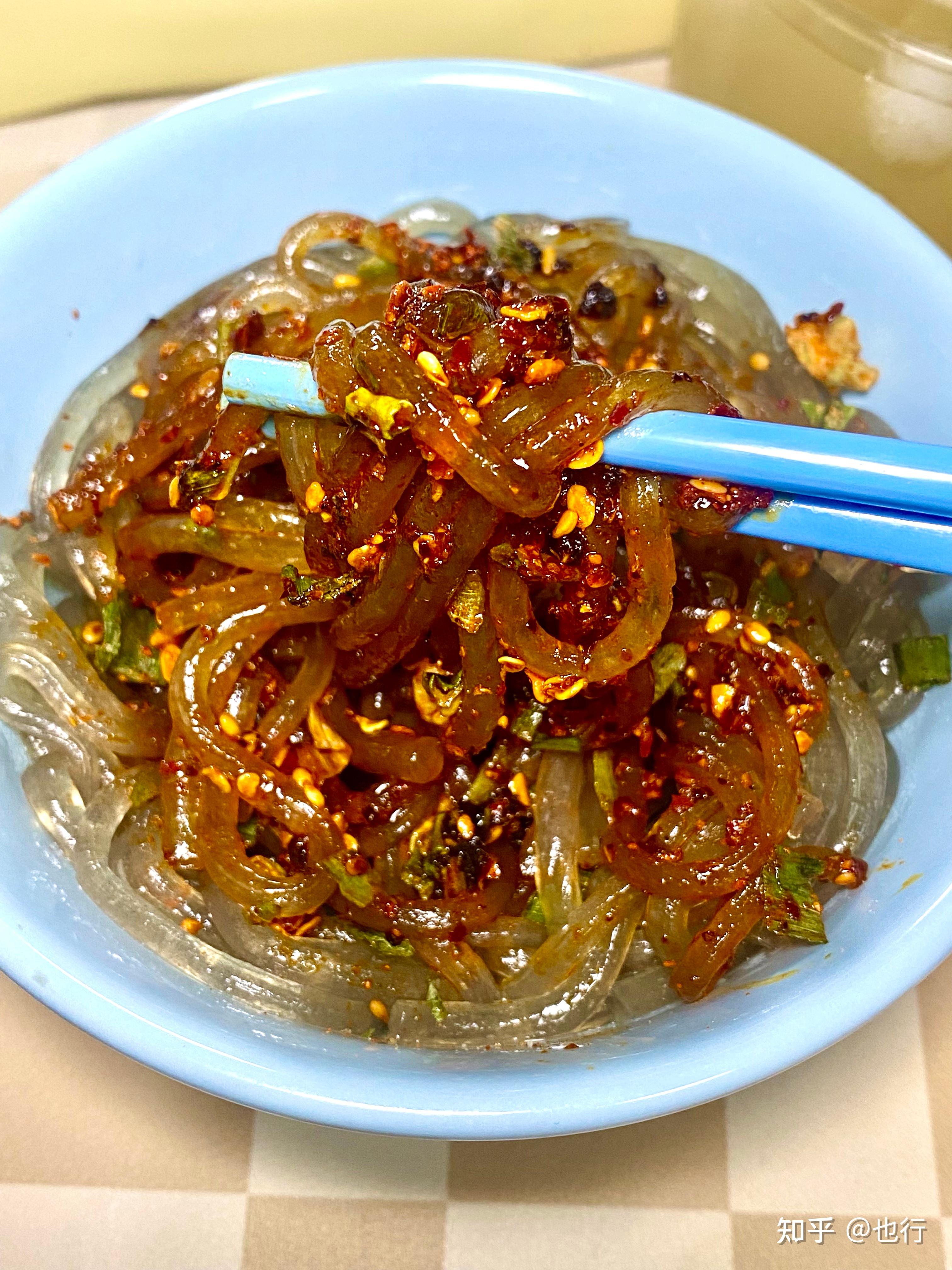无辣不欢:探索中国辣味美食的火爆魅力与文化故事
你是不是也常常觉得,没有一点点辣味,那顿饭就好像少了点什么重要的东西?那种味蕾被瞬间点燃,然后全身都跟着热起来的感觉,哎呀,就是让人觉得特别过瘾, isn't that right? For many, many people across China and indeed the world, the love for spicy food isn't just a preference; it's a way of life, a deep-seated passion that truly defines their culinary joy. It's almost as if a meal without that fiery kick just doesn't quite hit the spot, you know?
This deep affection for all things spicy is, in a way, what the acclaimed Tencent Video documentary series,《无辣不欢》 (Hooked on Spicy), sets out to explore. Launched in May 2023, this 12-episode visual feast takes viewers on an incredible journey. It uses the sensation of "spicy" as its main focus, unfolding the many different personalities of this taste. So, it really does bring a super hot and passionate food and visual experience right to your screen.
So, what exactly makes us so drawn to this particular kind of heat? Is it the thrill, the unique flavors it brings out, or perhaps something more profound about culture and connection? This article will delve into the world of "无辣不欢," looking at why this phrase resonates so much with people, what the documentary reveals about China's diverse spicy food landscape, and why, for many, life is just a bit better with a fiery kick. It's truly quite something, the way food can connect us.
Table of Contents
探索“无辣不欢”的味蕾奥秘
The phrase "无辣不欢" (wú là bù huān) literally means "no spicy, no joy," or more colloquially, "hooked on spicy." It captures the essence of a profound culinary devotion, a feeling that a meal just isn't complete without that distinctive fiery sensation. This isn't merely about adding a little kick; it's about a deep, almost primal connection to the heat that transforms food from sustenance into an exhilarating experience. It’s a bit like a secret language spoken by taste buds, so to speak.
辣,不仅仅是痛觉
It's a common thought that spiciness is a type of pain, and in a way, that's true. Capsaicin, the chemical compound found in chili peppers, activates pain receptors on our tongues. But here's the really interesting part: our bodies respond to this "pain" by releasing endorphins, which are natural painkillers and mood boosters. So, that initial burn quickly turns into a feeling of euphoria, a kind of pleasant high. This unique physiological response is arguably why so many people actually crave the heat, repeatedly seeking out that thrilling sensation. It's a rather fascinating paradox, if you think about it.
This fascinating interplay between pain and pleasure is, you know, a core reason why individuals become so incredibly passionate about spicy food. It's not just about the flavor profile; it's about the entire sensory journey, the way it wakes up your mouth and, for some, even their spirit. The initial shock gives way to a warmth that spreads, leaving you feeling invigorated and, dare I say, quite happy. This phenomenon is something people often discuss, wondering why they can't get enough, and it truly is a testament to our body's amazing chemistry.
地域风情:中国辣味地图
China, a vast and culturally rich country, boasts an incredible diversity of spicy cuisines, each with its own unique character and intensity. The Tencent Video documentary《无辣不欢》 does a truly wonderful job of showcasing this regional variety. It takes viewers on a culinary adventure through some of China's most renowned "spicy regions," revealing the distinct flavors and cooking methods that define each area's approach to heat. It’s quite an eye-opener, really, how different they all are.
For instance, the series ventures into Yunnan, where the spiciness often comes with a complex, aromatic depth, maybe from wild peppers or unique fermentation processes. Then there's Jiangxi, known for its straightforward, intense heat that can sometimes be quite surprising. Sichuan, of course, is famous for its "mala" (numbing and spicy) sensation, which is a very different experience altogether, creating a tingling that lingers long after you've swallowed. This particular kind of heat, you know, is almost iconic.
The journey continues to Guizhou, where sour and spicy flavors often intertwine, creating a refreshing yet fiery profile. Hunan, on the other hand, typically prefers a dry, direct heat that really makes an impact. And perhaps surprisingly to some, even Hainan, an island province usually associated with lighter, tropical flavors, has its own unique spicy traditions, often involving fresh chilies and seafood. The documentary, in a way, paints a vivid picture of this incredible "spicy map," showing just how varied the love for heat can be across the country. It’s truly a testament to regional creativity, basically.
腾讯视频《无辣不欢》:一场火爆的味觉盛宴
The Tencent Video self-produced food documentary,《无辣不欢》, which first premiered on May 23, 2023, is more than just a show about spicy food. It's a comprehensive exploration of a profound cultural phenomenon, offering a really captivating look at the diverse ways "spicy" is experienced and celebrated across China. The entire series, with its 12 episodes, is, you know, a treat for anyone curious about this subject.
纪录片的核心魅力
The documentary's main appeal lies in its approach. It doesn't just present dishes; it uses the "spicy" taste experience as a unique starting point, then goes on to tell the stories of many different spicy personalities. This means it explores how various regions and individuals interpret and express their love for heat. It's truly a visual and auditory feast, designed to bring a "fiery hot and passionate" culinary experience right to the audience, making them feel as if they're tasting it through the screen. It’s quite immersive, actually.
One of the show's strong points is its ability to dig deeper, looking beyond the obvious flavors to uncover new insights. It takes well-known, popular tastes and offers fresh perspectives, giving viewers a chance to understand these familiar dishes in new, perhaps unfamiliar ways. This way of presenting things, you know, adds so much more to the viewing experience. It's not just about what's on the plate; it's about the history, the people, and the culture behind it all.
深入辣域,挖掘烟火气
The series covers a wide range of "spicy domains," including the aforementioned Yunnan, Jiangxi, Sichuan, Guizhou, Hunan, and Hainan. In each of these places, the documentary meticulously records the processes of making local spicy delicacies, from the careful selection of ingredients to the intricate cooking techniques. But it doesn't stop there; it also delves into the human stories connected to these foods. This is where the true "烟火气" (yānhuǒqì), or the authentic, down-to-earth human touch and daily life, really shines through.
By showing the people who create and enjoy these dishes, the film beautifully illustrates the "无辣不欢" group's underlying vitality and optimistic approach to life. It captures the everyday hustle and bustle, the joy found in simple meals, and the resilience that often comes with a love for intense flavors. It’s not just about the food, you see; it's about the vibrant communities and the positive spirit that spicy food seems to foster. This aspect, you know, makes the documentary incredibly relatable and heartwarming.
为什么我们对辣欲罢不能?
It's a question many people ponder: why do we keep going back for more, even when our mouths are on fire? The sensation of spiciness is, as we've discussed, a fascinating blend of pain and pleasure. But the reasons for our unwavering devotion to chili go beyond just the physical response. There's a whole lot more to it, really, like a complex recipe itself.
辣的科学与情感连接
Beyond the endorphin rush, there's a certain thrill that comes with eating spicy food. It's a mild form of risk-taking, a challenge that we willingly accept, knowing the reward is that satisfying warmth and the feeling of accomplishment. This could be, in some respects, why it’s so appealing. Some scientists even suggest that the act of eating spicy food can act as a sort of stress reliever, providing a momentary distraction and a release of tension. It's almost like a mini-adventure on your plate, you know?
Culturally, spicy food often plays a central role in social gatherings and celebrations. Sharing a fiery hot pot or a plate of intensely spiced noodles can be a communal experience, bringing people together and fostering a sense of camaraderie. The shared experience of the heat, the laughter, and the occasional teary eye create lasting memories and strengthen bonds. So, it's not just about the individual experience; it's also about the shared joy, which is actually quite significant.
辣味带来的乐观生活态度
The documentary《无辣不欢》 does a wonderful job of highlighting how a love for spicy food often goes hand-in-hand with a resilient and optimistic outlook on life. The people featured in the series, whether they are chefs, street vendors, or everyday eaters, often display a remarkable zest for life and a cheerful disposition. It's as if facing the heat on their plates somehow translates into facing life's challenges with a similar boldness. They just tend to be, you know, very positive.
Perhaps it's the constant pursuit of that exhilarating sensation, or maybe the knowledge that even intense heat eventually subsides, leaving a satisfying afterglow. This perspective, of pushing through discomfort for a rewarding outcome, seems to mirror a broader philosophy of embracing life's ups and downs with a smile. It's a really compelling connection, showing that food is so much more than just sustenance; it's a reflection of who we are and how we approach the world. This optimistic attitude is, arguably, a powerful takeaway from the series.
常见问题解答 (FAQ)
Q1: 辣为什么会上瘾?
A1: 辣味中的辣椒素会刺激我们舌头上的痛觉感受器,但身体为了应对这种“疼痛”,会释放内啡肽。内啡肽是一种天然的止痛剂,同时也能带来愉悦感,甚至有点像兴奋剂。这种痛感与快感的交织,就是让人对辣味欲罢不能,甚至产生“上瘾”感觉的主要原因。所以, it’s really about that delightful chemical reaction, you know?
Q2: 腾讯视频《无辣不欢》纪录片在哪看?
A2: 腾讯视频自制美食纪录片《无辣不欢》于2023年5月23日首播,全系列共12集。您可以在腾讯视频平台观看,会员通常可以专享全部内容。如果您在海外,也可以通过WeTV APP来观看这部精彩的纪录片。 It’s quite accessible, basically, for anyone wanting to watch.
Q3: 中国最能吃辣的省份是哪里?
A3: 中国有多个以吃辣闻名的省份,例如四川、湖南、贵州和江西。每个省份的辣味都有其独特之处。四川以“麻辣”著称,湖南则偏爱干辣,贵州的辣味常与酸味结合,而江西的辣则以直接和猛烈闻名。纪录片《无辣不欢》就深入这些“辣域”,展现了它们各自的辣味个性。 So, it’s not just one place, you know, but a whole spectrum of fiery traditions.
结语
The phenomenon of "无辣不欢" is, you know, a vibrant testament to the incredible diversity of human taste and the deep cultural connections we form with food. It’s more than just a preference for heat; it’s a celebration of flavor, a shared experience, and for many, a reflection of a spirited approach to life. The Tencent Video documentary《无辣不欢》really does offer a fantastic window into this passionate world, inviting us to explore the many facets of spicy cuisine across China. Learn more about spicy food culture on our site, and to truly appreciate the visual feast, you might want to link to this page where you can find more details about the documentary.
So, the next time you feel that familiar tingle on your tongue, perhaps you'll think about the rich stories and vibrant cultures behind that fiery bite. It's a wonderful journey, isn't it, to explore these tastes? And maybe, just maybe, you'll find yourself saying, "I'm truly 无辣不欢!" today, on this very day, November 19, 2023, or whenever you're enjoying your next spicy meal. You know, it's a feeling that just sticks with you.
- Kobe Bufkin
- Bryan Cranston Director
- Fort Lauderdale Weather Hour By Hour
- Taj Louisville
- Lena The Plug Nude

今日饮食分享🤤无辣不欢 - 知乎

c4d_无辣不欢_H-站酷ZCOOL

爆辣鱼蛋拌面吃到爽!无辣不欢的我又回来了!芜湖-张喜喜--张喜喜--哔哩哔哩视频